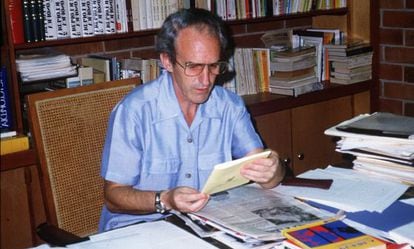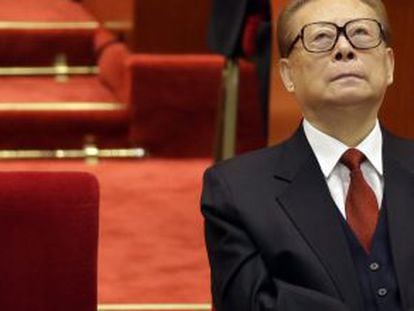Supreme Court approves inquiry into 1989 Jesuit massacre in El Salvador
Judges say universal justice changes do not affect Spain from assuming jurisdiction


The Spanish Supreme Court has given its backing to a High Court judge to continue his human rights investigation into the 1989 murders of six Jesuit priests and two of their workers at the height of El Salvador’s civil war.
In a ruling issued late Wednesday, the court said changes made by the government to Spain’s universal justice doctrine did not affect the High Court from assuming jurisdiction in the case because five of the eight victims were Spanish.
The Salvadoran justice system did not punish those responsible for the murders, the court says
At the same time, the court said there were “serious and reasonable indications” that the Salvadoran justice system did not hand down effective punishment to those responsible for the murders that took place at the Universidad Centroamericana (UCA).
On November 16, 1989, military officers entered the UCA and shot dead the rector, Ignacio Ellacuría; fellow Spanish priests Amando López, Juan Ramón Moreno, Segundo Montes and Ignacio Martín Baró, as well as Salvadoran clergyman Joaquín López y López. They also shot the priests’ cook, Elba Julia Ramos, and her 16-year-old daughter Celina.
In 2008, the Pro-Human Rights Association of Spain and the Center for Justice and Accountability filed a complaint with High Court Judge Eloy Velasco.
After receiving pressure from foreign governments – most notably China – to restrict Spanish judges’ power to investigate human rights abuses in other countries, Prime Minister Mariano Rajoy last year ordered changes to the universal jurisdiction doctrine that produced an outcry from jurists and rights organizations.
Passed by Congress with the sole support of the Popular Party (PP), part of the text of the new law states that Spain cannot investigate some crimes committed in other countries where judicial proceedings have already been opened unless there are indications that a foreign government cannot or is unwilling to prosecute.
Two retired military officers, Colonel Alfredo Benavides Moreno and Lieutenant Yusshy René Mendoza Vallecillos, were convicted by a Salvadoran jury in 1991 and sentenced to 30 years in prison for the massacre. However, they were both freed under a government amnesty two years later.
In its opinion, Spain’s Supreme Court said that there were “serious and reasonable” indications that the 1991 jury trial was not held to find those responsible for the murder but instead to obstruct justice, “all of it accompanied by the absence of the necessary guarantees of independence and impartiality.”
Prosecutors resigned after the attorney general refused to allow them to call military officials to testify
According to Judge Velasco, a Salvadoran commission investigating the murder case took its time in seeking documents, which could have been destroyed during the process, while at the same time kept important evidence from the investigating judge.
Another factor affecting the judicial case in San Salvador was the resignation of the prosecutors after the attorney general refused to allow them to call important military officials to testify on the stand.
The Supreme Court still has to decide on whether two other universal justice cases should continue at the High Court level: the 1976 murder of Spanish diplomat Carmelo Soria during the Pinochet dictatorship in Chile, and the 2010 Israeli attack on volunteers in the Freedom Flotilla, who were bringing aid to Gaza.
Last month, the Supreme Court upheld the dismissals of two High Court investigations into alleged human rights violations by Chinese officials in Tibet. These cases had been the focus of intense diplomatic pressure by Beijing.











































